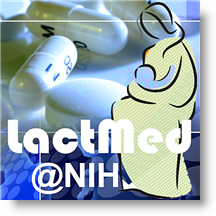 Perhaps you're nearly as confused as I was about what a “midwife” does (versus what a “doula” or your “mother-in-law” might do to support you during labor). Let me spell it out for you in super plain English. Homebirth Midwives: Are able to practice well-woman care, like pap smears and exams, and attend the births of healthy women carrying healthy pregnancies. They do not prescribe prescription medication, nor do they offer medical pain relief methods or procedures. Most often their care includes visits to your home before and after baby is born. Appointments with home birth midwives tend to be longer and more frequent than with other birth attendants. Certified Professional Midwife This woman has trained for years in both an academic and practical setting and then passed two grueling exams: one on paper, another eight-hour practical exam. It is the only credential that requires experience delivering babies both inside and outside of hospital settings. Legally, CPM's can practice in 26 states (although each state sets the standards for who may or may not practice in a medical setting like a hospital or birth center). http://www.nacpm.org/what-is-cpm.html Registered Midwife (in Colorado) This woman has trained for years in a variety of settings, from academic to apprenticeship. She must register with the state of Colorado and is the only birth professional permitted to attend home births. They must either take a training program through a recognized school or provide proof of equivalent experience and education. http://www.coloradomidwives.org/registered-midwives-and-certified-nurse-midwives Hospital Birth Midwives Somewhere between a homebirth midwife and an OB/GYN, a hospital birth midwife frequently works with healthy women carrying healthy pregnancies, but is also trained in the medical model and may offer medical interventions like pharmaceutical drugs and minor surgical procedures. Hospital birth midwives work in a medical office and do not travel to your home before or after baby is born. Their appointment times are often longer than the appointments of an obstetrician seeing a healthy pregnant woman. Certified Nurse Midwife This individual (the majority of whom are women) has a bachelor's degree in nursing and then a post-graduate degree (two years) in labor and delivery. She must practice within the scope of an obstetrician, meaning her philosophy of care is supervised/directed by a physician. http://www.midwife.org There are a whole host of organizations that offer credentials to midwives, and that is because there did not used to be a single organization. Each state had to define their own rules regarding midwifery care. Your midwife may carry a credential that is not listed here, and she may still be an excellent caregiver. Regardless of the midwife you choose, you should know that your midwife is NOT a DOULA, or a person who is dedicated as a labor support person. Midwives provide perinatal health care, but will not arrive at your labor as soon as it begins. Typically, you make several phone calls to your midwife as your labor progresses and s/he evaluates when to meet you at your house/hospital. Some home birth midwives are also trained as doulas, but they will not perform both functions at once. In the event you need or choose to transport to a hospital, your home birth midwife may serve as a doula depending on her training and scope of practice. Clear as mud? Great. Have a conversation with your provider about what services they offer and whether you'd like to invite a doula to assist you or work with the assistance of a family member/friend. Interested in learning about whether a doula is right for you?
2 Comments
 My BFF's husband, Brian. Holding a walnut. If you're expecting a baby or have a new baby at home, you might feel slightly overwhelmed? No? You might feel like it is imperative that you know absolutely everything about pregnancy, breastfeeding, motherhood, immunizations, daycare, and kegels? I know these are understatements, because every time I meet a new mama or a mama-to-be, I see a wild-eyed, information-starved, overloaded woman who just wants to know everything. I can relate to the overwhelm and the constant drive to learn more. A few years ago I worked as a patient advocate for clients living with HIV, and I remember frantically searching the internet for answers, calling pharmaceutical reps so that I could confirm suspicions before confronting doctors, and literally standing in the doorway to keep a doctor in the room until he gave me what I wanted: one more test for my client. This is the Mother Lion behavior, a true testament to one's willingness to find their voice on behalf of someone else. Are you thrilled about being a mother lion? I'll wager you'd say half yes, and half no. And you're right on target. I'm about to give you the skills to be the mother lion on behalf of your child and for your own health as well, and it thankfully involves little internet research, bargaining, bribing, or accusations of wrongfully detaining a physician against his will. Which may or may not be a crime in Colorado. I recently took a training from CAPPA to become a certified lactation educator, and during that training I learned a very important acronym that sums up exactly what you need to know. Because I'm afraid of intellectual property and all that jazz, I've modified it a bit to become my own. CAPPA encourages clients to use their BRAIN when they must make a medical decision, so I'll recommend you ask BRIAN. My version comes with a handy cop-out, should you ever need to leave the room. Instead of saying, "I'll have to consult my brain" you can easily say out loud to yourself or to your partner, "I'd like to run this by BRIAN." Hint. Hint. When confronted with a medical decision (someone suggesting a procedure, medication, or other treatment), ask BRIAN. Well, BRIAN E. And remember, if there are two patients involved (you and baby) make sure to ask the question for BOTH of you. Often mamas defer to what is healthy for baby without asking what she might experience, too. If you want your baby to have the best care available, you must make sure your baby has a mother well enough to deliver that care! Benefits. What are the benefits of this treatment? This is something the person will likely list for you automatically, but occasionally they do not articulate the benefits because they believe the treatment to be the best option out there, or possibly accept it as common practice. No harm in getting the skinny (with sources, if you're hesitant or want to do your own research). Risks. What are the risks of using this medication or treatment? This is also something they are likely to disclose, but not always in conversation. Usually these are the items listed on a release waiver, informed consent paper, or literature from the manufacturer of the medication or treatment. Intuition. What does your gut say about this treatment? This is why you might need a few minutes away from the person offering the treatment so that you can gut-check. Does your gut check matter? Only to you. This isn't some wacky hippy yoga instructor gobbledygook. This is actual science, from a medical anthropologist. People must believe that the treatment/medicine they will take can work. Even clinically tested medications do not work all of the time, and they work less well and less often if the patient has no faith in them. You will actually know how you feel instantly, but it might take you a little while to articulate how you feel. Give yourself a little time, if you can (see N). Alternatives. Ask what other possibilities exist besides the recommended course of action. Perhaps there are a few that have their own benefits and risks, but if you'd like to be an informed consumer, ask for the names of other medications or treatments so that you can do a little of your own research. This is also a great time to ask the provider why they would select the option they are recommending instead of these procedures. Sometimes it is because they believe the course of action is the best for you, and sometimes it is because they are more familiar with what they are suggesting. If their answer is "I don't feel comfortable performing that procedure myself," you probably don't want them to perform it, either! That doesn't mean the procedure itself is inherently flawed, it may mean you need a referral to someone else. Nothing. What would happen if you took no action? Are there risks for waiting to do this treatment or start this medication? When will the window of opportunity close? Expert. This is my bonus addition. I know it makes Brian a little tougher to remember, but you can write it on your hand if you must! Ask the person who is suggesting this medication or treatment to refer you to an expert on the topic. Even if they are an expert, there is nothing wrong with a second opinion. Now, to play through in two FUN scenarios to drive the point home. Pregnant mama is experiencing lots of discomfort during her early labor. Her nurse suggests she try taking a shower. What are the benefits of taking a shower? What are the risks of taking shower (to me AND to my baby)? What does my gut say about a shower right now? Are there other things we can do or medications we can take? If I don't feel like taking a shower now, will I be able to take it later? What might limit my opportunity to do so? BONUS: Is there someone who is familiar with pain relief techniques that I can speak with? New mama is concerned about how much her baby is eating. Her pediatrician suggests offering baby a bottle of formula once a day. What are the benefits of using formula? (for me and the baby) What are the risks of using formula? (for me and the baby) What does my gut say about using formula? Are there other alternatives to using formula? What would happen if we do nothing? How will we know when we need to do something or come back and see you next? BONUS: Is there someone who is familiar with infant nutrition or breastfeeding who I can speak with? You're on a wonderful journey to be a mother, and no one will expect you to turn around and deliver the next baby! Your job isn't to be an expert about everything you could possibly confront on this journey. Every time you meet with a doctor, midwife, therapist, nurse, or practitioner of any kind, put BRIAN E. in your bag. It will save you from Doctor Google and information overload.  Nothing makes people smile like pictures of babies and baby animals, right? We go nuts for the big eyes, the tiny fingers, the various forms of baby fluff. There are whole galaxies of the Internet devoted to kitty porn because I firmly believe it is the only known remedy for the tragedy in the daily news and boredom in the corporate office. So why oh why aren't new mamas the Happiest People On Earth? First, Grumpy Cat doesn't cry, poop, or make your nipples bleed. So there's that. Second, there are some truly incredible things that have to happen in order for two people to make one more. These things involve hormones. Most of the time, the making hormones are awesome, otherwise we would have gone extinct long before slicing bread. The hormones of breastfeeding and morning nuzzles are equally awesome. But this hormonal hootenanny can leave mama awash in a brave new world of ups, downs, and fun-house-mirror-sideways. You've read about postpartum depression, but (like most things) what you've read through the popular medial lens is... um... not fully accurate. Before you stop reading and go back to the kitty porn, here are a few things I think you might like to know about postpartum depression. It Ain't All Sad: technically, postpartum depression is one of many postpartum mood disorders. Even those diagnosed with this condition aren't necessarily sad in the sense that they are weepy, withdrawn, and no longer interested in joyful activities. More women experience anxiety and hyper-vigilance than overt sorrow. It is normal but you don't have to buck up and take it. If you know you're prone to anxious thoughts, or you start to make rules about how many times grandma must wash her hands before touching your little one, it's time to make a phone call. Crazy Ain't Likely: most women who struggle with postpartum mood disorders avoid seeking treatment because they are afraid that someone will take their baby away. There is a mood disorder called postpartum psychosis, which the media have lovingly mis-labeled postpartum depression in some famous cases. This is certainly terrible, but the overwhelming majority of women with a postpartum mood disorder do not fall into the category of postpartum psychosis (that said if you are ever in a situation where you think you might be a danger to yourself or your baby, please call a friend and keep calling until someone answers, or call 911). Don't Hold Your Breath: for whatever reason, we think of the postpartum period as the first six weeks after baby is born. If you make it through this time with just a little case of the baby blues as your hormones readjust to pre-pregnancy style, groovy. But that doesn't mean you're out of the woods. Postpartum mood disorders can creep up on you later in the first year of life. Treatment Helps: learning that your feelings are normal and that there are ways to cope with them (other than laminating everything in your house or crying alone in the bathroom) is empowering. I think it is wise to connect with a therapist every three months even if you're feeling jolly as an elf. There is always something they can offer you, even if it has to do with your romantic relationship, your family, or your future. Get Out of the House: the secret-agent aspect of Mom & Me yoga? You get to meet other mamas, especially those you've known from prenatal yoga. You get to learn what other mamas worry about and support one another. The instructor can also give you a little guidance and support if it looks like that's what you could use most. The first year of your baby's life might be totally joyful, but you're likely going to experience some bumps as well. It's kind of like four-wheeling*. Sometimes the bumps are fun, and sometimes they are more than you are equipped to manage on your own. *I know literally nothing about four-wheeling.  I recently watched the documentary series "More Business of Being Born" and it made me think yet again about how birth begins. Do you know? Let me explain. Your body is working very hard to support your baby right now. Not only have you grown an entirely new organ (the placenta) you are getting ready to make milk for when baby is born. You might feel excitement about the upcoming birth, or a little trepidation that you aren't ready and can't quite keep a good handle on time. There is nothing wrong with you! As luck would have it, you're not supposed to decide when your baby is born. You're not supposed to have ANY IDEA! Women in my class are frequently frustrated when they don't "feel" any different once they hit the magical 40 week "due date" marker. The dirty secret? Women have never known (and neither have men). In the "old system" (and by old system, I mean the one used from 3.3 million years ago until about 100 years ago) went like this: Miss a period? Count nine moons. (yes, actual moons. Like full moons. In the sky). Sometime between the ninth and tenth moon, you'll have a baby! I'm sure that ancient and not-so-ancient women all gazed at the moon and cursed the sky when they started to feel really uncomfortable. But they had only one option: wait. So if you don't decide, who does? There is something on the border of science and magic that happens when baby is ready to be born. Baby moves into a good position, pressing his head against your cervix. Some complex chemical changes start to happen in his body once he is ready to start breathing. Those changes signal your uterus to start contracting, and once things really get moving your water may break and baby will slide down even further. Under normal circumstances, baby decides, mama goes into labor and all is well! Occasionally, there are unusual circumstances, like an illness that mama has or some signs of fetal distress that warrant an earlier birthday. Thank goodness we live in a time when we have so many options when something goes wrong! So what's the deal with induction? You probably have friends who have had their labors induced for a variety of reasons. Some doctors will offer an induction even before your due date, and for a mama who is uncomfortable, this can sound like a great option. However, labor that is chemically induced can cause incredibly intense contractions that are very painful for you and baby. You can get an epidural, but your baby will not get any pain relief from it. It is worth asking some questions before you decide that an induction is right for you. 1. How will an induction affect my labor? I've heard it can make it much more painful and possibly more dangerous for me. What are your thoughts? 2. What are the possible effects for my baby? I've heard that babies who aren't ready to be born have more difficulty breathing and breastfeeding, and that the induction process is more traumatic for my baby. 3. Is there a medical reason why I should consider an induction now rather than waiting until I am 42 weeks? 4. I've heard that there are many ways of inducing labor. Can you please tell me about my options? This is a great time to use your B.R.A.I.N.: What are the BENEFITS of induction (for me and baby)? What are the RISKS of induction (for me and baby)? What are the ALTERNATIVES to induction? What does MY INTUITION tell me about this decision? What would happen if we were to do NOTHING right now? When would we need to decide? Want to read more? Check out the Mayo Clinic's article about Induction.  I'd like to think I know a thing or two about birth. I've attended dozens of births, read hundreds of birth books, and observed a number of birth classes. In fact, I wrote my undergraduate thesis on how what "we" say to pregnant women can affect their perception of the outcome of their labor. So when students ask me what kind of birth class to take, I have a few opinions on the subject. Consider the benefits of live, in-person childbirth classes: - In contrast to books and media classes, live classes are interactive which means you get your questions answered, but also those of other students. Questions you didn't even know you had! - You get to move around. Rather than just looking at pictures or video of birth positions, you can actually move and get feedback from the instructor. - Accountability to attend each class for you and possibly your partner, too. Even the best-laid plans to read books or finish seminars at an individual pace can quickly be usurped by the parts of birth preparation you think are more fun, like baby registries, showers, and assembling baby furniture. Five reasons to look beyond the hospital (for class): Sometimes hospitals offer a very inclusive and tremendous birth class, but often they are short and focus on the hospital procedure rather than the robust variety of topics and perspectives you're likely to get at an independent childbirth class. 1. You learn about birth (which is a normal thing, BTW). Literally everyone walking around out there was born, so this happens.... every day! You will learn about how your body will move through different stages of labor, learn tricks and tips to make yourself as comfortable as possible, and so will your partner. 2. You will meet other couples who you will get to know for many weeks. Most hospital-based classes are a little shorter and much larger in numbers than the other classes, which means you don't get the opportunity to connect with the other couples. This is great for partners who don't get the connection at prenatal yoga, and often don't seek out other parents-to-be. Many times these childbirth classes hold reunions a year later. If you don't yet have a village, this may be a great place to start forming yours. 3. Lending Library. Your hospital may also have a lending library, and certainly your local library has hundreds of books about birth. How will you choose? An out-of-hospital childbirth instructor often has a few go-to books that they know students appreciate and will typically lend them to their current students at no additional cost. 4. Personalization. Hospital classes typically need to cover a list of particular objectives, which may or may not be relevant to you. Independent childbirth classes are more fluid and customizable. Depending on where you live, you can find classes for high-risk mamas, first-time mamas, single mamas, mamas of multiples, lesbian mamas and more. Even if your class isn't specific for a particular group, your instructor will quickly learn about your values and help offer the information you're looking for. 5. They acknowledge that birth can happen outside of the hospital. They will not force an out-of-hospital agenda on you, but if you are the kind of person who is curious about the differences, they will share them with you. I know several mamas who planned their births in the hospital and wound up spontaneously delivering outside of the hospital because they could not transport in time. An independent childbirth class prepares you for the spectrum of birth possibilities. Questions to ask the teacher: Do you have any preference about where I choose to birth my baby? Can I ask you questions outside of class, via email or phone? Do you have a lending library that I can use? How many mamas/couples will you accept in a particular class? What is your birth-background? Where were you trained as a childbirth educator? How to tell if the teacher is one of your people: Do you welcome same-sex couples? Is there a faith background that you utilize in your teaching? Will I be uncomfortable in your classes if I do not share your faith? Will we be using art in this class? If you are in Colorado Springs and want to know about upcoming childbirth classes, subscribe to my newsletter for monthly announcements.  Copyright (c) 123RF Stock Photos When I was about two years old, I named the chickadee couple that frequented the cherry tree outside of our kitchen window. The mated pair were quite obviously named Ralph and Hungryeater. Today, as I was looking out the window of my home studio, I realized that I am a genius. Or rather, that I was a genius at the tiny age of two. These are the two states of pregnancy appetite: - Ralph - Hungryeater This is a tricky situation, particularly given the varied (and conflicted) lists of foods you should eat more of, foods you should avoid, and foods nobody should ever eat, but now you want all the time. If you are seeing a direct-entry midwife (not always a CNM), you're likely going to get lots of expert advice about which foods are best for you given your particulars. Midwives get more mandatory, specialized training about diet than MD's and CNM's (which isn't to say that yours hasn't taken on some additional study or research) and will often ask you to provide an extraordinarily detailed report of what you're eating, if/when you're sick, and how you might support yourself more fully with a few tweaks and changes. Most women in the US are under the care of an MD, and the typical advice I hear from my clients surrounding diet includes: 1. Take a prenatal multivitamin 2. Don't eat mercury-laden fish, deli meats, or unpasteurized cheeses. 3. Don't drink alcohol. Based on the questions I get in class sometimes, this information is not sufficient for most mamas-to-be. Here are a few resources that my students have recommended to me. I know a lot about food and nutrition, but I have no fancy letters behind my name that would permit me bestow on you professional advice. Peruse these at your leisure, or consider visiting a nutritionist or nutritional counselor who can answer your specific questions. For the mama who loves checklists, The Brewer Diet is all about categories and checklists. Recommended by Bradley Method childbirth educators, this one is adapted for vegetarians and vegans as well. For the mama who likes photographs and wants to learn more about the intricacies of each food, The 100 Healthiest Foods to Eat During Pregnancy is another popular book recommended by my students. In my opinion, it is worthwhile to listen to and report food cravings to your prenatal care provider or nutritionist. Your body might know a thing or two about what it needs to make the best baby possible. It makes good sense to focus on nutrient-dense foods and avoid empty calories. And it also stands to reason that you should never trust anything you read on the internet. (including this).  Amazing photo by Love Roots Photography When you leave a meeting with your doctor or midwife, do you feel fantastic? Questions answered, worries allayed, empowered and ready for the next step? If you're like many of my prenatal yoga clients, the answer isn't always yes. For many women, their choice in maternity care provider was based on a rogue recommendation or internet search, the "preferred" list on an insurance provider page, or the person you were already seeing for your gyn-needs. Sometimes a woman winds up with the provider who was able to accommodate her first prenatal visit in the shortest amount of time. As your visits progress, if you're starting to feel uncomfortable for any reason, it's time to look outside the box. You may have a misunderstanding of the "rules." Do you think so? Let's check. Rules About Switching Prenatal Providers in the United States: 1. There are no rules. Well, that was easy! Often women feel trapped with one provider even though their gut is telling them that the provider isn't the best fit. Sometimes there is nothing wrong with the current provider, but the woman meets another provider and feels so much better about that person that she's tempted to switch. And sometimes there is a poor fit between a woman and her provider and she's (interested in) running for the hills. How to Decide Whether to Switch: Visualize Your Birth. It's ok, I'm a yoga teacher, I'm allowed to tell you to visualize your labor and delivery. I promise, you won't hurt yourself. First, visualize with your current provider. Imagine how they will want to interact with you during your labor and delivery. Will they take charge or let you take charge, as you prefer? Will they consult you for options and make sure you are heard, or do what they are accustomed to without asking your permission/opinion? Write down how this imagined birth made you feel. Then, imagine either the provider you'd like to work with or your ideal provider and go through the exercise again. Write. Compare/contrast. DTR: Define the Relationship. My BFF and I agree that everyone should DTR with everyone they know, weekly. We're borrowing the practice from the Mormon faith, but we think it applies to everyone equally. Before jumping ship and changing providers, have a conversation with your current provider. Tell them what is worrying you and how you'd like them to interact instead. They can tell you whether or not your wishes are possible, and that will give you grounds for a stronger relationship with them, or a new partnership with someone else. Explore the Green Grass... with a fine toothed comb. In your current state, you might actually think that your newly preferred provider is exactly as you imagine. Before terminating the relationship with your current provider, make an appointment with this new person and DTR with them. Make sure you're getting the interactions that you wanted. Face Value. Get honest about your reasons for switching, especially if you can't seem to find anyone that lives up to your standards. The cards you've been dealt might limit some of the options you're seeking. For instance, if you are having twins, a home birth isn't going to pan out this time. If you have certain complicating factors, explore all of the options available, but know that no provider will be able to deal you a new deck of cards. If you decide to make the switch, know that you'll have some paperwork to do. Have a conversation with the office staff for your new provider, your insurance company, and your partner. Make sure you keep clear receipts, get the full copy of your chart and lab work from your previous provider, and keep your perspective focused on what money cannot buy: your (and your baby's) health.  Whether you are currently pregnant or whether you are breastfeeding a child, you need to think carefully about all herbs and medications you put into your body, because you're also putting it into your baby. Medications and herbs are more complicated when you are pregnant, because baby gets them in a different formulation than you do. When you are pregnant, your blood meets baby's blood at the placenta and nutrients and medications cross from you into baby. Some medications easily cross the placenta into baby's blood, and some do not. If a medication crosses easily, it might be overwhelming on baby's developing kidneys and liver to process the medication. This is why it is so important to have a conversation with your provider prior to taking any herbal or pharmaceutical medication. Breastfeeding is a different story, because breast milk is made differently. You make milk from nutrients and materials in your blood supply, which could possibly include herbs and medications. However, now baby will be getting this through baby's stomach lining and intestines rather than directly into the blood via the placenta, so the chart of medications is different. Is the herb or medication easily absorbed via the digestive tract? Is it a medication that is given to infants? And at what level will it appear in the baby? If the last two paragraphs have made you throw your arms up in the air and say, "Forget it!" take another breath. The excellent news about breastfeeding and medications is that there is a FREE app that is updated daily with information learned through clinical trials and reports from mamas and babies, and this is a great resource for you and your physician. Even if you are still pregnant, it is worth getting this app and looking at all of the medications your currently take to see if there is a better alternative while breastfeeding. LactMed is free and updated every time there is new information. It includes the safety information, guidelines, links to research, and possible alternatives for almost every single medication out there. It should be used as a resource, not gospel, so be sure to use it as a supplement to a conversation with your provider. The other great news: there are very few medications which are considered dangerous enough that you should stop breastfeeding. Others may recommend taking the medication an hour or two prior to breastfeeding. Your physician may not be up to date on the most current research, so if they advise cessation of breastfeeding due to a medication, it is worth consulting this app and talking about alternatives. If you are faced with taking a medication that you must take that is incompatible with breastfeeding, talk with your physician and an IBCLC about the possibility of breastfeeding once the course of medication has completed. You may be able to pump and discard your milk for the brief stint that you need to take the medication and then return to breastfeeding later on. Simply stopping will make restarting much more difficult in the future, so discussing your best options and your breastfeeding goals with an IBCLC is critical! What is an IBCLC? Check out my post The Breast Experts  What do you know about Omega 3 fatty acids? You may or may not have had a conversation with your midwife doctor about omega 3s when you talked about diet and supplements. In case you didn't here is a primer about what you might like to know: Omega 3s come in three types: ALA, DHA, and and EPA. DHA is critical for your baby's brain development. Your body is capable of creating DHA and EPA from ALA. ALA must come from a dietary source. You might think you need to eat fish, and if you're like me and the thought of eating fishes makes your stomach turn for one reason or another, I'd like to make a couple of suggestions. Sure, you can eat fish like salmon, herring, and sardines to get your omega three's, but you can also expose your developing baby to heavy metals like mercury by eating fish that has been poisoned with high levels of metals. Oil supplements? I'm almost as afraid of "fish oil burps" as I am afraid of the fish themselves. You can cut out "the middle fish" and get your omega threes the way they do: from algae (yum?). Not to worry, there are lots of great algae supplements out there, so you don't need to set yourself up for something equally as distasteful. If you like seaweed, you can do a little research and make some veggie sushi rolls and get your omega 3s in a tasty lunch. There have been no studies (that I can find on reputable websites) indicating the safety of flax and chia in pregnant women. Some worry that flax has estrogenic activities or that the consumption of these kinds of seeds in their whole form might cause GI distress in people with diverticulitis. I'd love to find a reputable study or two to support any concerns, so please share if you find any! Other foods with estrogenic activities include sweet potatoes, dairy and soy. I personally enjoy both flax and chia on a regular basis. Both flax and chia only provide the ALA form of Omega 3s (which is the only form you must take in via your diet). The bottom line? Ask your doctor or midwife and do some research on your own to determine the best form of Omega 3s in your life. And then find and share some recipes with your other pregnant friends! |
About meI'm one of those people who loves making your life easier (and I believe in you). I am an experienced registered prenatal yoga teacher and a lactation educator. Want more? My monthly newsletter might be for you.
Archives
April 2014
Categories
All
|
 RSS Feed
RSS Feed
